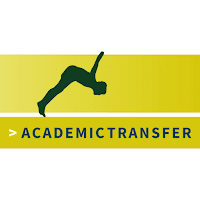PhD Talk for AcademicTransfer: How to apply for a PhD position in the Netherlands
 This post is part of the series PhD Talk for AcademicTransfer: posts written for the Dutch academic career network AcademicTransfer, your go-to resource for all research positions in the Netherlands.
This post is part of the series PhD Talk for AcademicTransfer: posts written for the Dutch academic career network AcademicTransfer, your go-to resource for all research positions in the Netherlands.
These posts are sponsored by AcademicTransfer, and tailored to those of you interested in pursuing a research position in the Netherlands.
If these posts raise your interest in working as a researcher in the Netherlands, even better – and feel free to fire away any questions you might have on this topic!
For those of you interested in applying for a PhD position in the Netherlands, it’s important to know that the procedures in the Netherlands are different from those you commonly read about, for example in the United States.
In the United States, you have to apply for a program, and the procedures are similar for a master’s degree and a PhD. It’s essentially based around the idea of applying to get into a graduate school program.
In the Netherlands, PhD students are considered employees of the university, so the application is much more like a job application. To help you understand how the process works in the Netherlands, here are a few things you need to know:
1. It’s a job
In the Netherlands, you traditionally are a salaried employee of the university during your PhD. This means you have social security, build up retirement funds, pay taxes, and are expected to perform like an employee, fulfilling certain functioning criteria. When you inform about a PhD position and talk to your possible supervisor, you should keep this in mind.
2. Start date is not related to a semester
Just as for a job, your start date doesn’t depend on the beginning of a certain semester. It depends on when your funding requires you to start and when your paperwork can be finished up (which can take some time if you need a work permit).
3. The coursework is limited
By now, it’s common in the Netherlands to require some credits in a Graduate School, but often these are shorter courses. There is no traditional coursework as in more coursework-based PhD programs. The main part of your assignment will be research, with some teaching assistance possibly.
4. The position is related to a PhD position opening
You can always inform if there’s a possibility to work on a PhD in a certain research group, but unless you would be self-funded, you can only be hired when there is an opening related to a certain project. That project needs to have the funds to pay for your salary. Some countries also offer scholarships, but these typically still require some matching of funds by the university in the Netherlands.
There’s a lot of candidates who cold email a professor to see if they can get a position. In fact, that’s how I ended up getting my PhD position in the Netherlands. I was at Georgia Tech at that time, and the financial crisis of 2008 made the prospects of staying there very difficult. I remembered that we had learned about the work of Prof. Walraven from Delft during my studies in Brussels, so I looked on the website what his research group was working on, and it mentioned they’d start a large project on the shear capacity of existing bridges shortly – so I cold-emailed him asking if they still had an opening, and about a month later, his secretary invited me for an interview.
As I’m now on the “other side”, I receive a lot of cold emails. The emails that I mostly ignore, are the ones that clearly show the person who wrote me, didn’t look at the work I’m actually doing, and is sending a standard email to thousands of possible supervisors. If you want to cold email a professor, make sure you know what their research area is about, and explain why you could be a good candidate for research on a certain topic. It helps if you have had the chance to personally talk to someone at a conference! If that’s not an option, make sure your email shows that you are really interested in a certain research group and topic, and that your background matches the research group (or explain why you want to make a switch in field of expertise).
I hope this information helps you when you plan to apply for a position, and good luck! Remember to check on AcademicTransfer for current positions.
